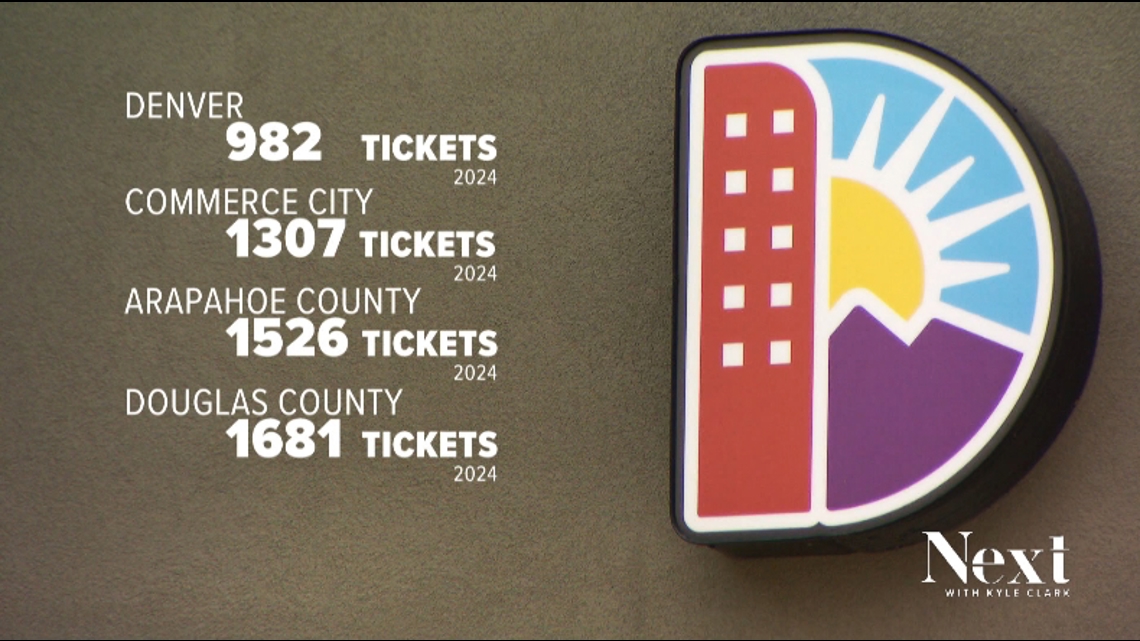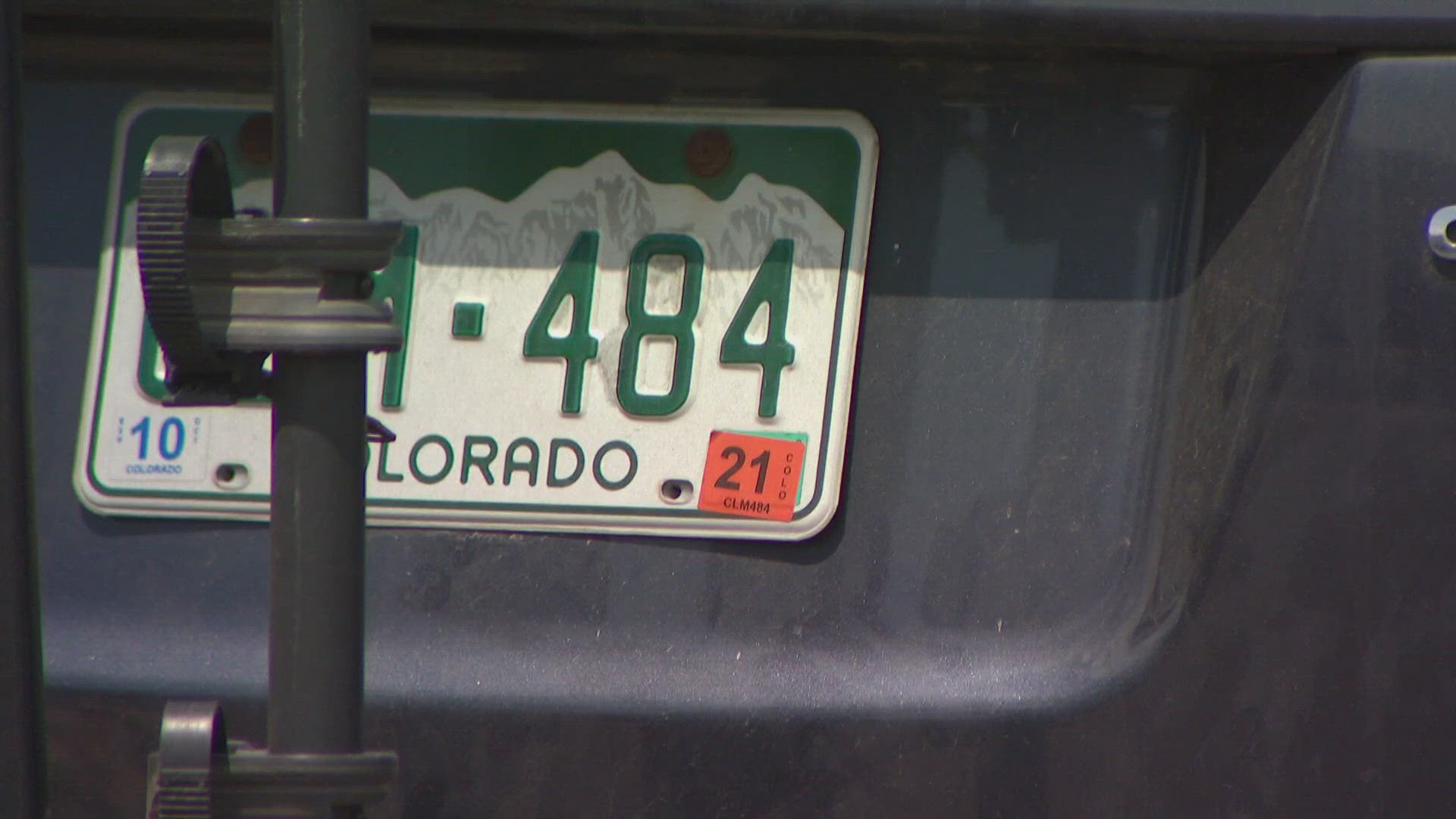DENVER — Expired license plates are everywhere, but there's a higher likelihood of getting in trouble for driving with them in certain places.
For all the people who avoid paying to register their car, avoiding getting caught is all about where they drive.
"There is no state regulation as it relates to low-level violations," Denver Police Chief Ron Thomas said.
Thomas knows it’s up to each individual department to decide whether to pull people over for certain low-level offenses like driving with expired plates.
"I am aware that Aurora took a pretty strong stance as it relates to expired registrations," Thomas said.
Aurora Police gave out hundreds of tickets earlier this summer when they announced they’d begin pulling people over solely for having old tags. Since their increased enforcement efforts began in May, the department has given out 305 citations.
DPD said they wouldn’t do the same at the time. That changed this week.
"Previously, according to the policy, there would have had to have been something else that would have prompted an officer to pull someone over for that particular offense," Thomas said.
The rules and protocols are different everywhere and even change from month to month. That's part of the reason some smaller police departments give out far more tickets for expired tags than other much bigger ones.


In Denver, 982 tickets have been issued since the beginning of this year.
Compare that to places like the much smaller Commerce City where the number of tickets has already surpassed 1,300 (1,307) this year.
In Arapahoe County, the sheriff’s office is already at more than 1,500 (1,526) citations.
In Douglas County, they’re already up to nearly 1,700 (1,681.)
Denver's Department of Transportation and Infrastructure has given out the most tickets. In 2023, DOTI gave out 86,021 citations to parked cars with expired license plates. In 2024, the department has given out 42,310 citations so far this year.
"It’s important to focus on violent crime. It’s important to focus on traffic safety violations, but I also think it’s important to listen to the community and understand that there is a concern as it relates to expired registrations," Thomas said.
Back in 2023, Colorado passed a new law to try and encourage people moving to the state to actually register their cars here and pay taxes. 9NEWS wanted to know how that’s been going so far and how much money the state has collected in back taxes. Turns out, the state does not keep track of that.
"The DMV does not currently track or have a report that distinguishes back taxes and penalties collected from new residents versus Colorado residents who register their vehicles late," the Colorado Department of Revenue told 9NEWS.

